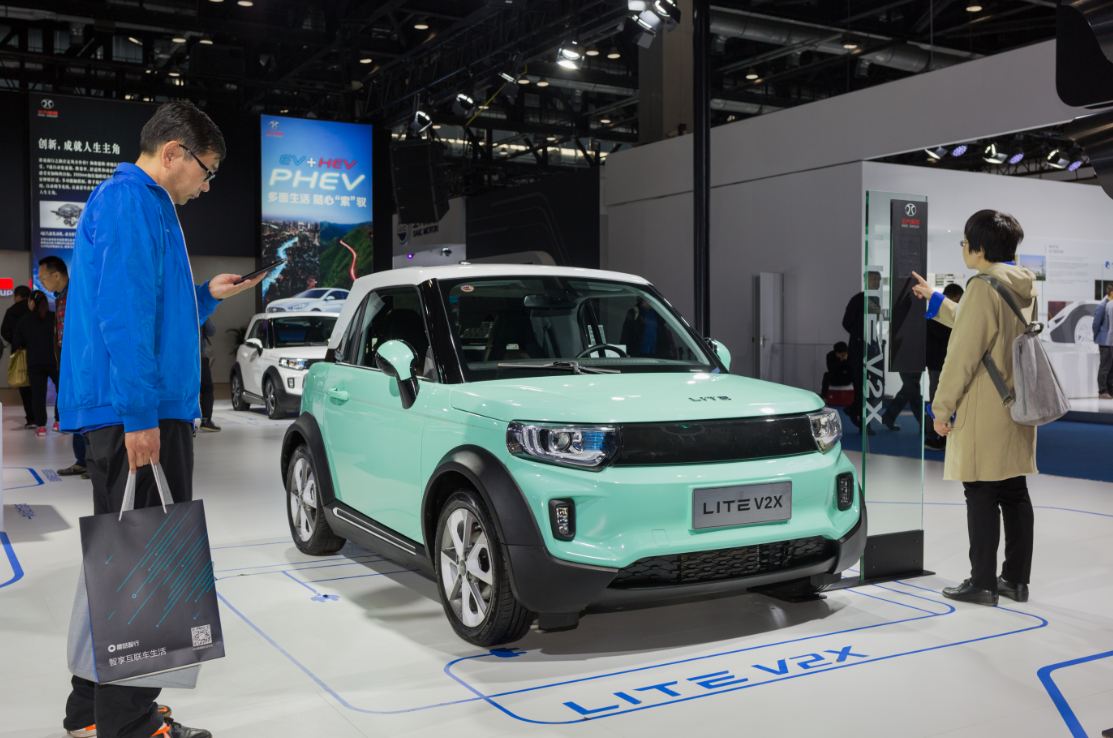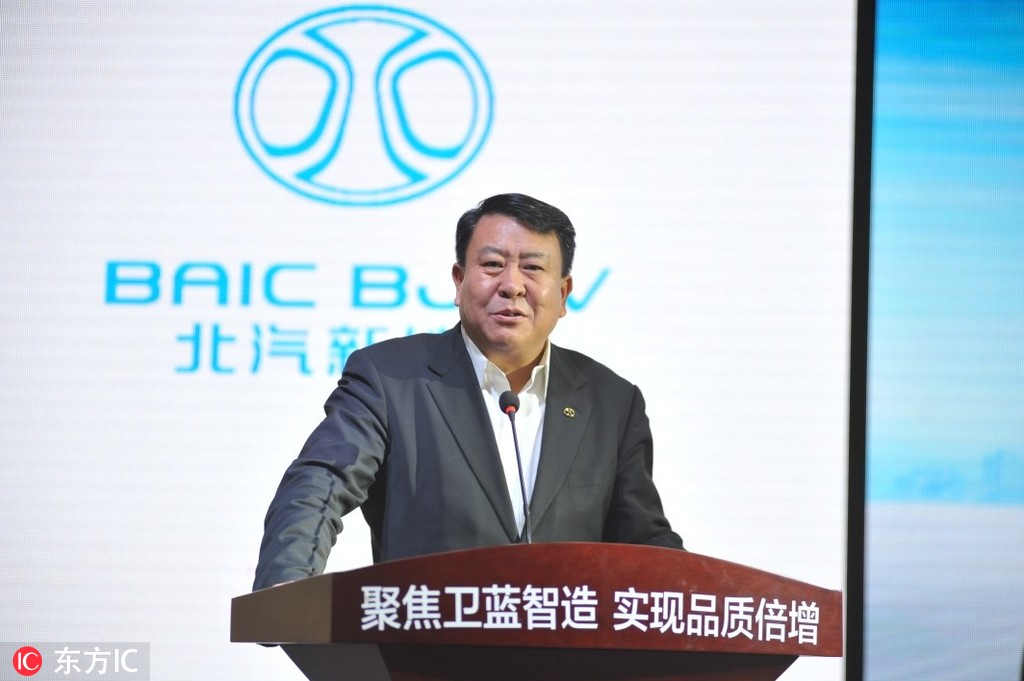BAIC ups next-gen tech drive


Automaker seeing in new mobility era with investment in smart, electric cars
Beijing Automotive Industry Corp, one of China's five leading automakers by sales revenue, is adopting more digital technologies and forming partnerships with companies in other sectors to upgrade its product range, amid the wider industry shift toward developing intelligent connected vehicles.
Eager to compete with other established rivals both from the domestic and overseas markets, BAIC Group unveiled its five-year plan this year. It aims to equip all of its products with world-leading self-driving or intelligent connected technologies by 2020.
"The future development trend of the automotive industry should be the deep integration and collaborative innovation between traditional automakers and internet companies," said Xu Heyi, chairman of BAIC Group. "All the steps are digitally synchronized to ensure execution and complete alignment with customer demand."
A number of global players from Germany, France, Japan and the United States have already digitalized their entire value chain, from product design and research and development, through to logistics, production and related services.
BAIC has adopted a flexible production model that combines people, machines and production processes. This allows the automaker to produce sedans and SUVs on the same production line in several of its plants, and in the future with either a pure electric or traditional combustion engine.
With the intelligent upgrade becoming an inevitable trend for the future of the automotive industry, Xu said, BAIC Group will transform and upgrade its business from a traditional manufacturing company to a manufacturing-service and innovative enterprise.
Promoting an intelligent strategy will be one of the company's main tasks over the long term, he said.
The Beijing-headquartered group implemented an intelligent car development strategy called NOVAPLS in 2017. The move came after it launched a comprehensive strategic partnership with Baidu Intelligent Vehicle Co, a subsidiary of Chinese tech giant Baidu Inc, to promote automotive intelligent upgrading in the same year.
"The government has also paid close attention to the intelligent connected vehicle development process, and has taken it as a vital way to relieve the pressures of traffic congestion, high energy consumption and environmental pollution," he added.
Xu said intelligent connected new energy vehicles are bound to be the final solution of the vehicle consumption upgrading process and future mobility.
Electrification is just the beginning of the new energy vehicle industry, he added, and the industry will be further impacted by new visions and technologies.

To strengthen the collaboration among leading automakers and improve overall technologies, BAIC took the lead by establishing the Beijing-based National New Energy Vehicle Technology Innovation Center, a national-level platform for new energy vehicles, in March.
In partnership with Baidu and German industrial conglomerate Robert Bosch GmbH, BAIC BJEV - BAIC Group's electric vehicle manufacturer - released its Darwin tech system in Beijing last month.
The EU5, the company's first model to adopt this new system, has all-day battery technology, which enables the battery heat time to shrink from 80 minutes to six minutes at under 30 C.
The company said the large power charging system will cut the charging time of the previous system by 50 percent. Models with this system will be able to run for 450 kilometers after charging for 15 minutes on a 350 kilowatt pole.
BAIC BJEV has invested more than 2 billion yuan ($290 million) in research and development in the past three years, accounting for 7 percent of its operating revenue. The company's investment in product development totaled 873 million yuan in 2017, representing 7.62 percent of that year's operating revenue.
Sun Fuquan, a researcher at the Chinese Academy of Science and Technology for Development, said both the supply and the demand sides are fostering the growing application of intelligent connectivity of China's automobile industry.
He said the intelligent technology will reshape the automotive industry's value chain, creating huge commercial value as well as a network connecting automobiles. That network will become the world's third-largest, after those linking computers and smartphones.
"We found that many young consumers rely heavily on the internet and pay close attention to a car's connectivity when deciding which to buy," said Sun.
With the Chinese government fostering the development of intelligent connected vehicles, several cities have introduced laws and regulations for autonomous driving trials, including Beijing, Shanghai, Chongqing, Guangzhou and Shenzhen in Guangdong province, and Changchun in Jilin province.
China welcomes more countries to participate in the development of the country's intelligent connected vehicles sector, including activities related to technology, manufacturing, talent and safety supervision, according to the Ministry of Industry and Information Technology.
The ministry predicted that the market scale of China's intelligent connected vehicles sector will exceed $14 billion by 2020.
The country is striving to cultivate a globally competitive internet-connected vehicles industry, planning to have intelligent cars with partial or fully autonomous functions account for 50 percent of the new vehicles sold in China by 2020.



































